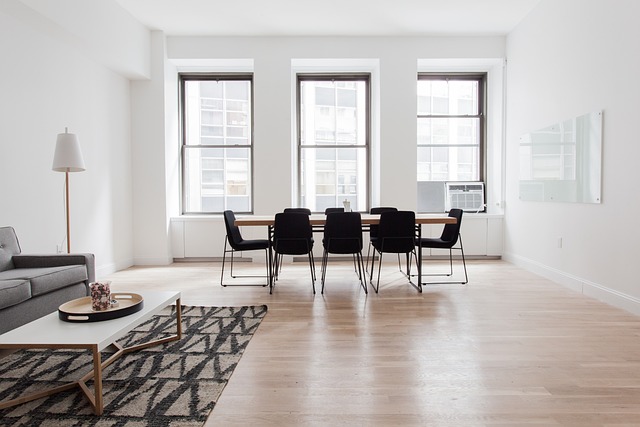Converting a basement from a storage room to a usable dwelling area is the process of finishing it. Wall installation, new flooring, plumbing, lighting, fixtures, and entertainment amenities are often included in the project. The amount of useable space in a house rises with a completed basement; however, the expense of finishing the basement must be considered when comparing the increase in value.

A basic basement finish may start around $30,000, according to Julie Hampton, a designer and project director with Freemodel, a pre-sale home restoration firm. However, Hampton notes that “many homeowners dream big with all the basement bells and whistles—and those can push costs well into the $150,000 range.”
Elements of a Completed Basement
“Finished basement” may refer to a variety of concepts. Municipal construction regulations, however, will probably provide a clear definition. These rules are often specific, based on the laws of your state and municipality.
A completed basement should generally include living spaces that are similar to those found elsewhere in the house. It must have framed walls, an emergency exit, an accessible doorway, a level ceiling, wired-in electricity, ventilation, functional plumbing, flooring, and waterproofing.
Finishing a basement is essentially combining interior design with a large-scale construction project.
The Factors Affecting Basement Finishing Cost
The size, kind, materials, labor, permits, project scope, and location of the basement all affect costs. Here are a few crucial things to think about.
Size of Basement
The square footage is often used as justification for the overall finishing project expense. The materials needed to finish the task, however, have a significant impact on the cost per square foot. Both the quantity of furniture in the room and the cost of the flooring are influenced by size.
Type of Basement
There are three different kinds of basements: partly completed, finished, and unfinished. It is unusual to find non-concrete flooring, drywall, or insulation in unfinished basements. It will thus cost more to finish a refinishing work from an incomplete condition than from a partly completed basement.
Work
The project’s size and scale, location, and materials all affect the overall labor expenses. The expenses could be reduced if you do the project yourself, but it will only be beneficial if you have the knowledge and credentials necessary to do the work to a good standard.
Prior to selecting a contractor, get quotations from many of them. The cost of any project that involves scheduling dumpsters or obtaining permits will include those services as well as any related administrative work.
Brightness
The Pacific Northwest interior design company ARDEN+SIENNA’s Camie Anderson notes that basements often get less natural light than other parts of the house. She also recommends a lighter color scheme for wall coverings and flooring, so you’ll need to factor in expenditures for fixtures and electrical wiring. It is costly to build windows or install external doors to bring in natural light.
Whereabouts

Due to local labor and material costs, the project’s cost will vary depending on where you live. For instance, remodeling projects in densely populated metropolitan centers like New York often have higher costs than those in rural locations. But the range of materials and contractors that are accessible depends on where you are. Increased rivalry may reduce total expenses.
Materials
Quantity, availability, and quality all affect price. The total cost of a project rises when expensive or imported materials are used. For instance, the price per square foot of carpet and laminate flooring might range from $3 to $15. Hardwood flooring installation may run up to $25 per square foot, while hardwood restoration can cost $3–$8 per square foot.
Prices vary from builder-grade, reasonably priced items to bespoke premium finish options. In your basement, mixing and matching is totally acceptable for both saving and splurging,” Hampton adds.
Inspections and Permits
Generally speaking, every construction project that modifies the structure of a building requires a building permit. In addition, homeowners may need separate permits and inspections for wall additions and removals, as well as for the installation of HVAC, plumbing, and electrical systems. Certain jurisdictions charge a set price for building permits related to basement finishing work. In others, they represent a portion of the project cost, often between 1 and 2 percent. These costs are often included in the final quotation from contractors.
Range of Work
Installing drywall and flooring might be all that’s needed to finish a basement. The overall expenses are lower for simpler jobs. Costs may skyrocket, however, if you want to convert it into a legitimate auxiliary housing unit. Waterproofing, sump pump installation, framing, plumbing, drainage, electrical work, insulation, flooring, painting, and window and HVAC system installation are possible tasks included in the scope of work.
How to Finish a Basement on a Budget
Refinishing may be done in stages, which lowers the total cost. The cost of insulation, drywall, and framing is lower with an open floor design. Instead of putting up solid walls, add appliances and modular furnishings as your requirements expand.
A basement might prove to be a terrific investment or a money-saver if done correctly the first time. When planning their basements, a lot of our customers consider the future. The neighborhood may be leased out as a second source of income, or elderly parents might move there, according to Hampton. Consider distinct entryways, compact kitchens, and even laundry facilities like a washing machine and dryer. When deciding what to do with your basement, it’s a great idea to create a valuable place that will evolve with your needs.
Selecting inexpensive, low-quality materials that need regular upkeep and repairs is advised. Instead, always work with certified and experienced builders who will ensure that your project complies with the most recent construction requirements. You are guaranteed value for the money with these compliance measures.
